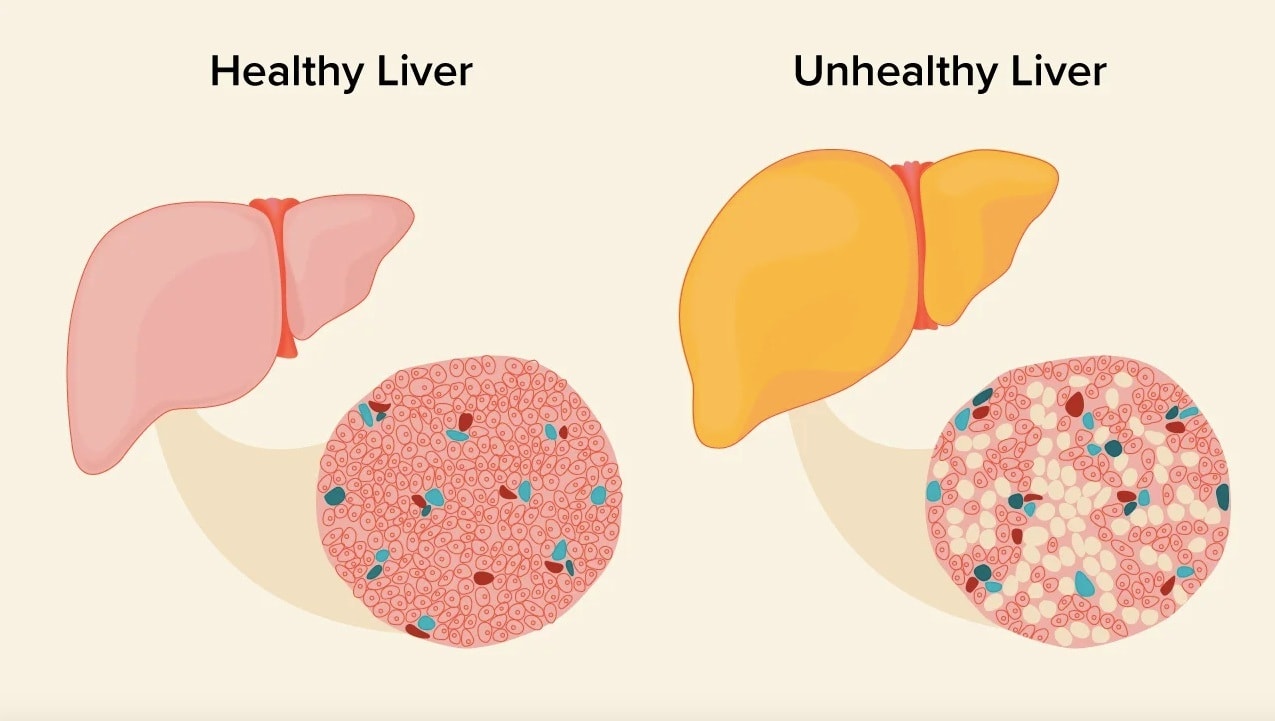Ways to reverse fatty liver disease you need to know
Fatty liver disease, a metabolic disorder, is also known as non-alcoholic fatty liver disease. This means there is a buildup of fat in the liver.
Experts don't fully understand why some people develop fatty liver disease and others don't.
But you are more likely to develop this disease if you are overweight or obese, have diabetes, high cholesterol and triglycerides, high blood pressure, or hepatitis C and other liver infections...
Most people with this type of fatty liver disease are middle-aged. But this condition can happen to anyone, even children.
Most of the time, the disease has no symptoms. That's why so many people with it don't realize they have it. But some people may feel pain or discomfort in the middle or right side of their abdomen, or feel very tired.
Unlike other types of liver disease, fatty liver disease, which is related to a metabolic disorder, does not cause damage to the organ. Therefore, you can take steps to reverse this condition before it becomes a more serious problem.

Most cases of fatty liver disease are asymptomatic. (Image: Healthline)
Losing weight
According toWebMDResearch shows that losing excess weight is the best thing you can do to control or reverse fatty liver disease, a metabolic disorder. A good goal is to lose 10% of your total body weight, but even a 3% to 5% reduction can improve liver health.
Talk to your doctor about the best way for you to lose weight safely and effectively. Options may include diet, exercise, weight-loss surgery, or weight-loss medication.
Treating other health problems
Fatty liver disease is associated with several other health conditions. Treating those problems may also reverse fatty liver disease related to metabolic disorders.
Possible conditions include diabetes, high cholesterol, sleep apnea, polycystic ovary syndrome, hypothyroidism, hypogonadism, or growth hormone deficiency.
Change your eating habits.
Changing your diet can help you lose weight, but it also has other benefits. These can improve overall health and reduce the amount of fat in your liver.
Here are some adjustments you can make:
- Eat more fruits and vegetables.
- Eat more fish.
- Eat more foods that are high in fiber.
- Avoid eating too many carbohydrates.
- Limit sugar intake.
- Limit saturated and trans fats.
- Limit salt intake.
And you can enjoy your morning cup of coffee. Scientists believe it may reduce liver inflammation, although they need more research to know for sure.
Reduce stress on the liver.
Alcohol can cause fat to accumulate in the liver. It can also damage this organ. You should avoid drinking alcohol if you have fatty liver disease related to metabolic disorders.
If you don't think you can stop drinking completely, then drinking less can still help. A simple rule of thumb is to drink less than one glass a day if you're a woman and less than two glasses a day if you're a man.
Some over-the-counter medications can also stress the liver. Therefore, follow the dosage instructions when using acetaminophen to ensure you don't overuse it.
Make sure you read the labels of all the medications you take; acetaminophen is found in many prescription cold and pain medications.
You should discuss all medications and supplements you are taking with your doctor. Some people with liver disease should not take nonsteroidal anti-inflammatory drugs (NSAIDs), such as ibuprofen and naproxen.
Medications to consider
There are no specific medications approved to treat fatty liver disease associated with metabolic disorders.
One medication has been approved to treat the advanced stage of this condition, known as metabolic dysfunction liver disease with a higher degree of fibrosis. This occurs when there is inflammation and liver damage along with the accumulation of fat.
There are several other medications and supplements that you and your doctor may want to discuss.
You may need vaccinations to protect you from hepatitis A and B, viruses that can harm your liver. An annual flu shot is also important.
Some studies have found that vitamin E appears to improve liver function in some people, but science has not yet proven this.
If you're considering trying this supplement, talk to your doctor first. It may not be safe for everyone and has been linked to prostate cancer.




